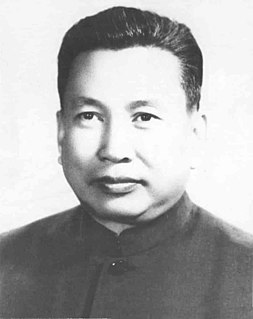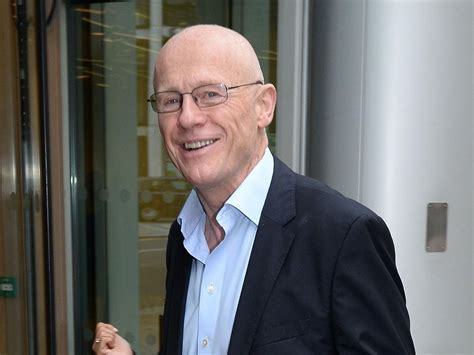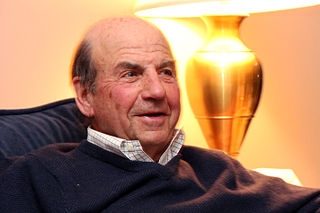A Quote by John Dewey
Selection aims not only at simplifying but at weeding out what is undesirable.
Quote Topics
Related Quotes
Creationists argue that natural selection is only a negative process, and therefore cannot create anything. Chopra argues that skepticism is only a negative process, and therefore does not lead to knowledge. Both are wrong for the same reasons. They ignore the generation of diversity and new ideas upon which natural selection and skepticism acts. Weeding out the unfit is critical to both - natural selection allows evolution to proceed, and skepticism allows science to advance.
Group selection and individual selection are just two of the selection processes that have played important roles in evolution. There also is selection within individual organisms (intragenomic conflict), and selection among multi-species communities (an idea that now is getting attention in work on the human microbiome). All four of these levels of selection find a place in multi-level selection theory.
Objectivity is impossible and it is also undesirable. That is, if it were possible it would be undesirable, because if you have any kind of a social aim, if you think history should serve society in some way; should serve the progress of the human race; should serve justice in some way, then it requires that you make your selection on the basis of what you think will advance causes of humanity.
You can be a thorough-going Neo-Darwinian without imagination, metaphysics, poetry, conscience, or decency. For 'Natural Selection' has no moral significance: it deals with that part of evolution which has no purpose, no intelligence, and might more appropriately be called accidental selection, or better still, Unnatural Selection, since nothing is more unnatural than an accident. If it could be proved that the whole universe had been produced by such Selection, only fools and rascals could bear to live.
Artificial selection turned the wolf into the shepherd, and the wild grasses into wheat and corn. In fact, almost every plant and animal that we eat today was bred from a wild, less edible ancestor. If artificial selection can work such profound changes in only ten or fifteen thousand years, what can natural selection do operating over billions of years? The answer is all the beauty and diversity of life.
We need only take our heads out of the sand to see clearly that interventionism not only has failed to provide the promised something-for-nothing, but has led to all sorts of undesirable consequences. Indeed, many are just beginning to realize that we are moving towards disaster even though we have been on a wrong heading for decades.








































